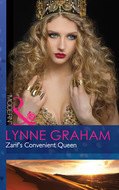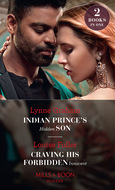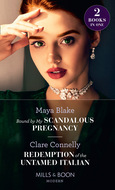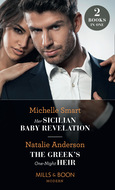Kitap dosya olarak indirilemez ancak uygulamamız üzerinden veya online olarak web sitemizden okunabilir.
Kitabı oku: «Cruel Angel»
DEAR READER LETTER
By Sharon Kendrick
Dear Reader,
One hundred. Doesn’t matter how many times I say it, I still can’t believe that’s how many books I’ve written. It’s a fabulous feeling but more fabulous still is the news that Mills & Boon are issuing every single one of my backlist as digital titles. Wow. I can’t wait to share all my stories with you which are as vivid to me now as when I wrote them.
There’s BOUGHT FOR HER HUSBAND, with its outrageously macho Greek hero and A SCANDAL, A SECRET AND A BABY featuring a very sexy Tuscan. THE SHEIKH’S HEIR proved so popular with readers that it spent two weeks on the USA Today charts and…well, I could go on, but I’ll leave you to discover them for yourselves.
I remember the first line of my very first book: “So you’ve come to Australia looking for a husband?” Actually, the heroine had gone to Australia escape men, but guess what? She found a husband all the same! The man who inspired that book rang me up recently and when I told him I was beginning my 100th story and couldn’t decide what to write, he said, “Why don’t you go back to where it all started?”
So I did. And that’s how A ROYAL VOW OF CONVENIENCE was born. It opens in beautiful Queensland and moves to England and New York. It’s about a runaway princess and the enigmatic billionaire who is infuriated by her, yet who winds up rescuing her. But then, she goes and rescues him… Wouldn’t you know it?
I’ll end by saying how very grateful I am to have a career I love, and to thank each and every one of you who has supported me along the way. You really are very dear readers.
Love,
Sharon xxx
Mills & Boon are proud to present a thrilling digital collection of all Sharon Kendrick’s novels and novellas for us to celebrate the publication of her amazing and awesome 100th book! Sharon is known worldwide for her likeable, spirited heroines and her gorgeous, utterly masculine heroes.
SHARON KENDRICK once won a national writing competition, describing her ideal date: being flown to an exotic island by a gorgeous and powerful man. Little did she realise that she’d just wandered into her dream job! Today she writes for Mills & Boon, featuring her often stubborn but always to-die-for heroes and the women who bring them to their knees. She believes that the best books are those you never want to end. Just like life…
“Such a disappointing greeting for your husband,”
he murmured.“I had hoped for something a little more—familiar.”
The way he said the word made it sound like an insult, and yet the lilting Italian accent sent a shiver of graphic remembrance through her in spite of herself.“You are my husband in name only,” she stated.“We have been separated for over two years, and legally that means I am now free to seek a divorce. Surely you realize that, Stefano?”
There was a spark of anger in the dark, glittering eyes, but it was gone in seconds.“I realize it only too well, cara,” he said.“But as you know, divorce means nothing to me. In the eyes of the church, and in—” he dropped his voice to a velvety whisper “—my eyes, we will always be man and wife, with all the endless and delightful possibilities that the state of matrimony offers.”
Cruel Angel
Sharon Kendrick

MILLS & BOON
Before you start reading, why not sign up?
Thank you for downloading this Mills & Boon book. If you want to hear about exclusive discounts, special offers and competitions, sign up to our email newsletter today!
Or simply visit
Mills & Boon emails are completely free to receive and you can unsubscribe at any time via the link in any email we send you.
CONTENTS
Cover
Dear Reader
About the Author
Title Page
CHAPTER ONE
CHAPTER TWO
CHAPTER THREE
CHAPTER FOUR
CHAPTER FIVE
CHAPTER SIX
CHAPTER SEVEN
CHAPTER EIGHT
CHAPTER NINE
CHAPTER TEN
CHAPTER ELEVEN
CHAPTER TWELVE
CHAPTER THIRTEEN
Copyright
CHAPTER ONE
‘TWO minutes, Miss Carter.’
Cressida nervously smoothed clammy palms down her naked thighs, wishing that she could dispel her nerves.
Her costume didn’t help, of course. The play was set in the late nineteen-fifties, the action taking place in a beach house, and for a large chunk of the time Cressida wore a swimsuit. True, with its ruched skirt, and its fairly innocuous wired bodice, it was hardly shocking, and, compared to some of the outfits you saw on the high street, positively innocent. But Cressida knew that there was something about seeing a partially clad woman on stage which drew far more attention than someone wearing something scanty in the street. It had been one of the first things she’d learnt at drama school—how the stage exaggerated, and gave emphasis—not just to emotions, but to costumes and scenery, too.
‘You’re on, Miss Carter.’
Her pulses were weak and flying, her heart hammering in her chest. She was paralysed. She would never move again from this spot. And then she heard her cue line, and she ran lightly on to stage right.
It was the pivotal moment of the play . . . the one where she discovered her husband’s infidelity. Adrian, the actor playing her husband, was engrossed in a letter, but the sound of her footsteps disturbed him. He was to turn to her, and their eyes were to meet, and her expression was meant to convey the sudden realisation of the extent of his betrayal.
It was a difficult scene at the best of times, but today, in this stiflingly tense atmosphere, it needed every ounce of her professional skills to inject all the meaning which the playwright demanded. Just what was this tension? she wondered. She could almost smell it in the air, could feel it surrounding her like a heavy cloud, reminiscent of the charged, expectant air just before a storm broke.
It was unusual enough two weeks before opening to have a full dress rehearsal, and on stage instead of in the rehearsal rooms. Most of the cast had muttered about it, but Cressida had just put it down to one of the director’s little foibles.
She briefly looked down towards the back of the house, to where Justin, the director, sat in his customary chair, but today, to her surprise, he was not alone. She could see the shadowy form of a man beside him.
She began speaking her lines, uttering them in the anguished way which was still comparatively easy for her to do. For who better could convey the despair and the loneliness of a marriage in its final death throes?
But she found the words unbearably difficult this afternoon. The atmosphere in the theatre was affecting her in a tangible way. She whirled to pick up the champagne glass to hurl at Adrian, and as she did her eye was caught by a movement next to the director. She stared into eyes that glittered like jet, and the plastic glass slipped out of her hand to bounce harmlessly at her feet. Her head bowed forward as if it were too heavy for her slender neck to support.
‘Oh, my God,’ she said weakly, and passed out.
When Cressida came round a few seconds later, it was to uproar all around, with Justin, the director, on his feet. ‘What’s going on?’ he was shouting. ‘See to her, someone!’ then, holding his hands helplessly up in the air, as he turned to the tall black-haired man who stood beside him.
‘I’m sorry about this; I don’t know what’s got into her. She must be ill.’
Cressida heard a horribly familiar voice—deep, with the slightest foreign inflexion.
‘Ill?’ The voice mocked. ‘Indeed?’
With a monumental effort she forced her eyes open to find herself surrounded by her fellow actors—Jenna holding a glass of water and Adrian proffering a cool cloth. She pushed them away, determinedly getting to her feet, smiling at Adrian to indicate that she wished to continue with the scene.
‘I’m fine,’ she insisted. It had been an illusion, she thought desperately. It must have been. A flashback brought on by the content of the play. ‘Fine. Honestly!’ She straightened her back as she stood up, giving her familiar wide-mouthed smile, which shrivelled and died like a scorched leaf when she saw that it had been no illusion. The man had risen, along with Justin, but he made the director fade into insignificance. He was staring at her intently, but the theatre was too dark to interpret the expression on his face. Not, she thought bitterly, that it had ever been a face which wore its feelings openly.
Her eyelids felt as if they had been weighted with lead, fluttering to cover the huge eyes, and when she opened them again he had gone.
She was unable to carry on. It had never happened before, and she was close to tears. She had always been a professional, through and through, and now here she was, a quivering wreck, her hands shaking as if she had seen a ghost.
But you have seen a ghost, tormented a voice in her head. The ghost of your past. You had never thought to see him again; not now—after all this time. Hadn’t she prayed for that, night after night, once her initial heartbreak was over?
Justin scrambled up on to the stage. He held out his hands and grasped hers tightly. ‘Don’t worry, lovie.’ He smiled. ‘Is it nerves, or are you ill?’
She gave a pale smile. ‘Headache,’ she said lamely. ‘I’m sorry, Justin.’
Justin fished a peppermint out of his pocket and began to crunch. ‘Go home,’ he said firmly. ‘And rest. You’re my favourite actress, and you’ve never pulled a stunt like this before. We’ll rehearse tomorrow instead. Now go! Quick! Before I change my mind!’
She wanted to ask him about the man sitting with him, about what he wanted with him. Or with her? But to ask that would be to acknowledge that she knew him, and that was the last thing she wanted. That was an area of her life which she had carefully concealed—a definite no-go area, and far too painful to resurrect.
She stumbled back to her dressing-room, collapsing into the chair in front of the mirror, her green eyes looking huge in her unnaturally white face, the full lips a ghastly slash of trembling scarlet.
Had she dreamed it? Could she just have imagined it? An over-active imagination conjuring up an image of him? She shook her head, the hairspray-stiffened fifties hairstyle scarcely moving. That had been no dream. That had been Stefano, in the warm, living flesh.
And then it dawned on her. The letter from her solicitor had gone to his in Rome just a couple of months ago, requesting a divorce after two years of separation. And it had gone unanswered. Stefano had ignored it. ‘Leave it for a while,’ her solicitor had reassured her. ‘There’s often a hiccup at this stage. Cold feet, perhaps. Your husband may have decided he doesn’t want a divorce, after all.’
Like hell, thought Cressida bitterly. An ultimatum delivered coldly, followed by absolute silence for two years. No further evidence was needed to convince her that Stefano wanted her out of his life.
She could remember the words he had used as if it had been yesterday. ‘I will not have you remaining in England to work, while I am in Italy. A wife’s place is by her husband’s side, and if you take this job then our marriage is over.’ But there had been no choice—she had to take it—that way lay sanity, at least. And what alternative had he offered her? A marriage growing worse by the minute with a cold, distant husband who seemed only to want her when she was in his bed?
Cressida stared sightlessly into the lighted mirror of her dressing-table, sitting as mute and as still as a statue. And in her heart she knew that she was waiting, so that when the knock came she didn’t even start, but moved slowly towards the door as if she had been put on automatic pilot.
It could, of course, have been anyone—a member of the cast, the director, or the prompt: all legitimate visitors to see how she was feeling after her unexpected collapse. But she knew without a doubt that it was none of these. Even the knock at the door was typical of the man—not loud and insistent, but soft and firm, the trademark of a man who did not have to yell and bluster to get what he wanted. Oh, yes, she thought, that was Stefano to a T—used to getting exactly what he wanted in that quietly determined way of his.
She pulled the door open, carefully composing her face, knowing that polite disinterest would be her most effective weapon. ‘Hello, Stefano,’ she said coolly.
Black eyebrows arched arrogantly. ‘Such a disappointing greeting for your husband,’ he murmured. ‘I had hoped for something a little more—familiar.’
The way he said the word made it sound like an insult, and yet the lilting Italian accent sent a shiver of graphic remembrance through her in spite of herself. She prayed for the right, dispassionate response. ‘You are my husband in name only,’ she stated. ‘We have been separated for over two years and legally that means I am now free to seek a divorce. Surely you realise that, Stefano?’
She had a reaction at last. There was a spark of anger in the dark, glittering eyes, but it was gone in seconds. ‘I realise it only too well, cara,’ he said, in a voice which was soft with menace. ‘But, as you know, divorce means nothing to me. In the eyes of the church—and in—’ he dropped his voice to a velvety whisper ‘—my eyes, we will always be man and wife, with all the endless and delightful possibilities that the state of matrimony offers.’
He stood, lounging in the narrow doorway, as though he had every right to be there, his stance relaxed, though she knew him well enough to know that the muscles beneath the smooth brown skin were flexed and alert.
Outwardly, she thought, he had changed little. Perhaps the features were slightly more fined down, but not dramatically so. Even as a relatively young man, his face had held none of the softness of youth. The eyes, even then, had been hard, glittering and farseeing, the beautiful mouth always distorted by its habitual cynical smile. She had never been able to imagine him as a happy and carefree little boy—always as the curt, calm man who knew exactly what he wanted. She looked into the implacable brown eyes, searching for some hint of why he was here, but she saw nothing, bar a flash of the only emotion she had allowed herself to remember. Desire.
She forced herself to remain calm. They were, after all, in the middle of a busy English city, in a theatre full of her colleagues. He might have succeeded in making her feel as though she were trapped in some derelict Italian mountain hut, miles away from civilisation, but she patently wasn’t. Why, she had only to raise her voice, and any number of people would come running to her aid. And Stefano was a powerful and successful businessman—it wouldn’t augur well for his professional or personal reputation if she started screaming her head off and the Press got hold of it. She could just imagine the field-day the newspapers would have with something like that.
The only problem being that he hadn’t done anything which wasn’t in any way totally above board. And he knew it. He was regarding her now with a look of infuriating amusement.
‘You look so angry,’ he mused. His tongue curved briefly over the perfect teeth which looked so brilliantly white against the olive skin. ‘I love that look,’ he whispered. ‘Sometimes you used to look just like that before we . . . ’
Her cheeks flared, and it was as much as she could do not to slap her hands over her ears. ‘Shut up!’ she spat at him, terrified that his words would make her picture what he had been about to describe. If she remembered that, she would no longer be in control. ‘Whether or not you consider we are separated is your problem. It’s a fact. We are. By English law.’
She steeled herself to ask him, ‘Why are you here, Stefano?’ She looked at him expectantly, but he said nothing.
The silence grew as the dark eyes swept slowly and deliberately down every inch of her body, at first dispassionately, but then they lingered on her breasts, at the soft swell which was emphasised by the pushed-up wire foundations of the swimsuit. The gaze moved down—she saw it alight with interest on the still flat line of her belly—and further down, dark eyes glinting as they stared very deliberately at the soft curves of her bare thighs.
Her cheeks stung with fire as she registered the insolence of the inspection. She responded with the kind of flip comment she knew he would detest. ‘Seen enough?’ she taunted.
The cynical mouth curved. ‘I don’t think so,’ he murmured. ‘I don’t think I’ve seen nearly enough. But these others . . . these . . . ’ Here he spat out a word in Italian, a word she had never heard before.
She raised her eyebrows. ‘Sorry?’ she said haughtily. ‘I’m afraid you’ve lost me.’
His eyes narrowed. ‘Perhaps you would call them voyeurs,’ he hissed.
‘Voyeurs?’ she interrupted scornfully. ‘What on earth are you talking about?’
‘The audience,’ he spat out. ‘The ones who come to feast their eyes on you.’
She laughed aloud. ‘Oh, come, come, Stefano—I’m hardly indecently clad.’
‘Do you like it?’ he asked suddenly, his voice dangerously soft.
Bewildered, she stared at him. ‘Like what?’
‘These men, in the audience—the ones who watch you, who look at you, who want you in their beds at night. Does it excite you? Does it?’
She made as if to turn away, but he stopped her with a light touch of her forearm which didn’t fool her for a moment—she could feel the steely strength behind it.
‘Does it?’ he persisted. ‘Do you like them to look at your . . . breasts?’ She gasped as he reached out and almost idly moved his hand down to encircle and to cup one breast, moving it skilfully over the nipple, knowing through years of experience, and the instinct he had always possessed when it came to touching her body, how to imprison it there through pleasure alone. Her knees sagged, as the spirals of pleasure shot through her body like flames. It had been so long. So long . . .
He was not speaking now, as if he sensed that words would make reality intrude, his fingers speaking for him as they moved with sweet accuracy over the thin material of the swimsuit. He bent his head to kiss her neck, slowly and luxuriously, moving to suck gently and erotically on the lobe of her ear, and then at last possessing her mouth in such a way as to make her fleetingly, incredulously think that his need was as fierce as her own. And even while she despised her weakness, she gave herself up to that kiss, returning it with a long-suppressed hunger as though it were the last true thing in the world.
Even during the bad times—and there had been many of those—even the very worst times, he had always been able to do this to her—to extract this response from her. He had been her teacher, her tutor, her master. He had schooled her in the art of love, and he, only he, could do this to her.
He had begun speaking again. ‘And here.’ He moved his hand down to the soft flesh of her inner thighs. ‘Do you like them looking at you here?’ He moved his mouth to hers, speaking against it, so that she could feel the warm sweetness of his breath. He was deliberately insulting her, and yet he was making her so dizzy with longing that she had to grip on to the taut line of his shoulders, afraid that she might collapse into a heap at his feet. ‘Do you think they would like to do what I am going to do to you? Do you?’ And he slipped his fingers inside the swimsuit, to find her honeyed moistness, and she gave a strangled moan and flung her arms tightly around his neck.
‘Stefano!’ she cried brokenly into his shoulder, every vestige of reason gone, unable to relinquish one second of the sweet joy he was inflicting on her, her lips burying themselves helplessly into the soft shaft of his neck. ‘Stefano—no! We mustn’t. You know we mustn’t.’ It was a pathetic, half-hearted plea, and they both knew it.
He ceased the insistent movement of his hand, she was pushed away with a cool firmness, and she watched in total disbelief as he calmly walked over to the mirror above the washbasin, adjusted his tie, glanced at the expensive gold wristwatch and then at her, his eyes coolly mocking. ‘Most assuredly we mustn’t,’ he agreed. ‘I have a business meeting to attend to. A very important meeting—and one which gives precedence over what I believe you English call a ‘‘quickie’’.’
There was a second of shocked silence while her mind tried to assimilate what he had just said to her, and when she did her temper, fuelled by a deep self-loathing, erupted with a vengeance. With a cry she launched herself at him, her small hands beating ineffectually at the solid muscular wall of his chest.
‘How dare you?’ she demanded. ‘How dare you do that?’
‘What?’ he asked softly.
‘To come in here like that, and to—to—’
‘To touch you?’ he mocked. ‘To kiss you? To make you move beneath my fingers—your body telling me how much you still want me, even now?’
‘Why, you animal!’ she cried. ‘You low-down, no-good . . . ’
He was laughing, soft mirth lighting his eyes, as he caught her hands and looked down at her as though she were a very naughty little girl. ‘Ssh, cara,’ he murmured. ‘You should not call your husband all these names . . . ’
‘You won’t be my husband very soon!’ she howled in frustration. ‘I keep telling you!’
‘Tch, tch.’ He made a clicking noise with his teeth. ‘So stubborn. Stop worrying your beautiful little head. There is nothing wrong with wanting me to make love to you. It is perfectly natural.’
‘I’d rather burn in hell!’
He continued calmly, as if she hadn’t spoken, still with that confident smile on his mouth, the same spark of anticipation in the cold, glittering eyes. ‘I know you want me, and I want you. But not now. Or here. I don’t want it to be on the floor of your dressing-room, after so long. I want there to be a bed—a small bed will do, but a bed, most assuredly. And it will be all night. I’m going to make love to you all night.’
In a minute she would wake up, but while the nightmare was in progress she might as well have her say. ‘You are not going to make love to me! Get that into your conceited head, Stefano. You are not going to come anywhere near me, ever again. We are finished. Kaput. Finito.’
He looked at her with resignation, then shrugged his shoulders in that typically Latin way that she’d once found so impossibly endearing. ‘I still want you,’ he said.
‘Well, tough!’ she retorted, remembering, as if clutching on to a lifeline, his curiously old-fashioned loathing of slang.
‘And—’ another shrug ‘—you know me well enough, cara, to know that I always get what I want.’
She wondered fleetingly what kind of sentence she’d get for murder with this amount of provocation. ‘Not this time, you rat!’
His eyes widened. ‘I had forgotten just how much you could infuriate me. And, as I recall, there was only one sure way in which I could subdue your wildness.’
He made as if to move towards her, and she leapt back as if he were about to thrust a knife in her. If he touched her she would be lost.
‘Get out of here!’ she screamed, when there was a knock at the door. She closed her eyes in horror, then grabbed her kimono, pulling it over the bathing-suit and knotting the cummerbund tightly around her tiny waist. ‘Now look what you’ve done,’ she hissed.
An expression of sardonic amusement lit the dark eyes as he witnessed her obvious discomfiture, and he shrugged his shoulders. ‘Surely you have had men in your dressing-room before now?’ he mocked.
Cressida directed her blackest and filthiest look at him as she pulled open the door. It was Alexia, Harvey’s—the producer’s—secretary, her expression of irritated surprise fading immediately into a dazzling smile directed at Stefano.
‘I thought I saw you come in here,’ she pouted.
‘Mr di Camilla just—er—wanted my—autograph,’ butted in Cressida, knowing, even as she said it, just how ridiculous it sounded.
And Alexia’s expression said it all—this man was not a stage-door johnny, hardly the type who would hang around asking actresses for their autographs. She turned china-blue eyes on him. ‘Justin’s waiting for you in the foyer,’ she said, putting her head to one side slightly so that a wing of golden hair fell alluringly over one eye.
‘Thank you,’ said Stefano formally, and then inclined his head in Cressida’s direction. ‘And thank you so much for giving me your . . . time, and your—er—autograph.’
He had managed to make a simple sentence sound positively indecent, she thought furiously. ‘Goodbye,’ snapped Cressida.
‘Addio,’ he murmured.
‘I’ll take you to Justin now,’ gushed Alexia eagerly, but he shook his head.
‘There is no need,’ he said firmly. ‘I know the way, and I am certain that you must have better things to do than to act as my guide.’ He smiled.
As if he didn’t know, thought Cressida, with an oddly painful pang, that Alexia would have stuck to his side all day like a parasite if he’d let her.
Both women watched as he moved away, the superbly cut loose Italian suit only emphasising the remarkably muscular body which it covered.
Alexia stared at Cressida curiously. ‘Did he really want your autograph?’ she asked disbelievingly.
‘Yes,’ muttered Cressida abruptly, thinking angrily that she still didn’t know why he’d been here. And what business did he have with Justin?
The older girl had mischief in her voice. ‘Strange then,’ she said innocently, ‘that you’ve got lipstick smudged all over your mouth!’
Giving a yelp of rage, Cressida grabbed a handful of tissues covered in cold cream and wiped her lips bare. She turned to Alexia reluctantly. ‘Better?’
‘Better. I take it you approve of our new angel?’
There was a long pause, and, not getting the expected response, she looked at Cressida enquiringly. ‘Did you hear what I said?’
‘Yes,’ said Cressida slowly, ‘I heard.’ She had been thinking what an appropriate description of Stefano that was—yes, he had the face of an angel, a dark, mysterious angel. A cruel angel. But then the true meaning of the word sank in, with all its likely repercussions. ‘Angel’ was theatre slang for the financial backer of a play, with all the power and influence which that position merited.
She stared at Alexia in disbelief.
‘Oh, yes,’ said Alexia chattily. ‘I thought that you hadn’t taken it in. He’s been having hush-hush talks with Justin for weeks now—because the other backers are dropping out. He’s a hugely rich Italian businessman, I gather—or perhaps you knew that already?’ she fished.
‘Why should I?’ asked Cressida guilelessly, amazed at the ease of her lie and hating herself for it, and yet not seeing any alternative.
Why? she thought helplessly. Why is he doing it? Stefano had never been involved in the arts before—the very opposite, in fact. She asked herself the question without really wishing to know the answer.
She wasn’t aware of the journey back to the flat, only of the taxi driver’s startled expression when he took in her half-made-up face and the stiff, lacquered hair-do. He looked as if he was about to make a joke, but something in her expression must have stopped him, and the journey home was completed in silence.
All she knew was that she found herself lying on her bed, tears staining the thick foundation on to the cotton pillow, her dinner date with David forgotten.
Crying, not because fate had brought Stefano back into her life, but because he represented a happier time, the time of her life, and she was reminded with heart-rending clarity of how it had once been between them, such a long time ago . . .








